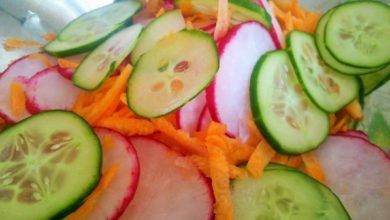You might have heard that it is important to soak the grains. Well, although not essential, in many cases it may be very interesting:
Grains are seeds, and seeds of all kinds have the ability to pass through the digestive system without being digested properly with the ultimate goal of being expelled and subsequently germinate elsewhere, creating new life.
The way nature uses to do that, is to provide grains with certain anti nutrients which will act in several ways:
- First, hindering the digestion of cereal:
Through enzyme inhibitors in cereal that interfere with digestion, hindering the function of the digestive enzymes.
- Furthermore, hindering the absorption of nutrients:
Phytic acid, for example, present in the bran of cereal, binds to certain minerals such as calcium, iron, magnesium or zinc, forming insoluble complexes which can not be absorbed in the intestines.
How can we neutralize phytic acid and improve absorption of nutrients?
By means of several processes:
- Germination
- Fermentation
- Cooking
- Soaking
In all cases, the target is basically to accelerate the process of germination, so that we eliminate the anti nutrients listed and we facilitate the digestion of grain.
The soaking process, perhaps the simplest of all, facilitates the germination process, making the digestion of cereal easier and allowing us to enjoy all its nutrients.
How do we soak grain?
Soaking, as germination or fermentation, activates an enzyme called phytase, present in cereal bran.
Phytase is an enzyme that helps break down the phytic acid in cereals, neutralizing it.
To activate the phytase certain conditions are necessary:
-
- Humidity
- Heat
- Time
- Slightly acidic environment
When we soak grains we are creating these conditions:
- It is therefore interesting to soak grains in warm water (moisture and heat).
- Leave them at room temperature for at least 8 hours (time).
- You could add some lemon juice or rice vinegar or umeboshi to create a more acidic environment.
Other benefits of soaking:
- Soaked cereal helps your pre-digestion. During soaking starches and tannins that can irritate the stomach are decomposed. Gluten is also decomposed, and the digestion is done much easier, even for people with a light protein intolerance.






excellent post !! thx
That’s a great article! Thank you!
however, I find that soaked grain, with its water thrown away, is much more weak and demineralized….
No need to throw away the water… by soaking the grain the fitic acid gets inactivated so you can use the soaking water for cooking and benefit from all the nutrients
I must teach this to my patients ! Thank-you and please keep up the wonderful work you are doing!